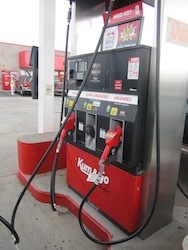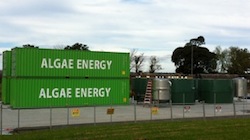This week Republicans, led by Rep. Conaway, submitted a proposal that will prohibit the Defense Department from buying alternative fuels that cost more than traditional fuels. This has come at a time when the Defense Department is moving full speed ahead with the testing of renewable fuels in various military equipment including planes, boats, helicopters, and other military vehicles. The military is also researching the use of solar and wind energy and partnering with American companies to develop and deploy the technologies.
 While it is true that in most cases advanced biofuels cost more per gallon than traditional petroleum based fuel, the only way to reduce the per gallon cost of advanced fuels is to bring them to market at commercial scale – something many groups are fighting tool and nail. The same is true in reaching per watt parity with solar and wind energy.
While it is true that in most cases advanced biofuels cost more per gallon than traditional petroleum based fuel, the only way to reduce the per gallon cost of advanced fuels is to bring them to market at commercial scale – something many groups are fighting tool and nail. The same is true in reaching per watt parity with solar and wind energy.
In response to this proposed action, Operation Free sent a letter to the Senate Armed Services Committee calling on Congress to support the military’s efforts as it leads the way in development of advanced biofuels and renewable energy. The organization criticized members of Congress who advocate for policies that have already proved to be failures. The letter states, “We must change how we use energy in this country — and the military is leading the way. ”
Danger Room’s Noah Shachtman summed up the ramifications of the proposal well, ” If the measure becomes law, it would make it all-but-impossible for the Pentagon to buy the renewable fuels. … And it might very well suffocate the gasping biofuel industry, which was looking to the Pentagon to help it survive.”









 The U.S. Department of Energy (DOE) today challenged
The U.S. Department of Energy (DOE) today challenged  The new analysis from the Center for Agricultural and Rural Development (CARD), an update to a
The new analysis from the Center for Agricultural and Rural Development (CARD), an update to a 